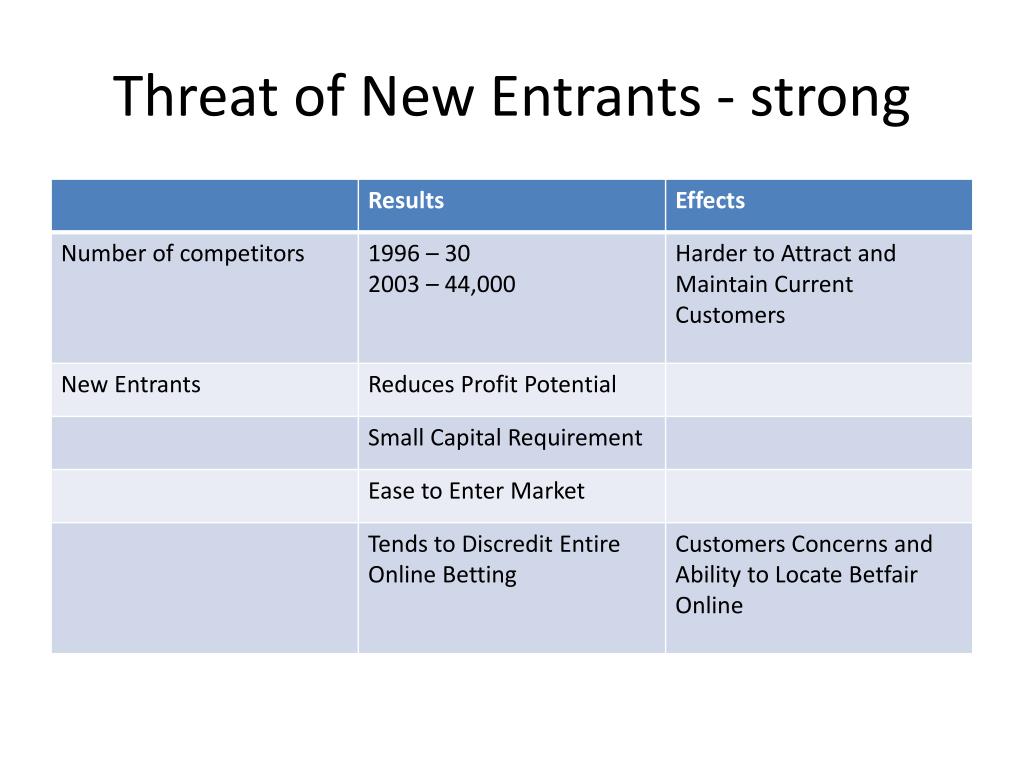
A potential entrant will find it difficult to gain entry to an industry where there are one or more established operators with a comprehensive knowledge of the industry, and with close links with key suppliers and customers. Retail space is always at a premium, and untried products from a new supplier constitute an additional risk for the retailer. Potential market entrants may be frustrated by not being able to get their products accepted by those individuals who decide which products gain shelf or floor space in retailing outlets. In many industries, manufacturers enjoy control over supply and/or distribution channels via direct ownership (vertical integration) or, quite simply, supplier or customer loyalty.

Certain industries, especially those which are capital intensive and/or require very large amounts of research and development expenditure, will deter all but the largest of new companies from entering the market.Lower unit costs result from increased output, thereby placing potential entrants at a considerable cost disadvantage unless they can immediately establish operations on a scale which will enable them to derive similar economies. Economies of scale exist, for example, the benefits associated with volume manufacturing by organisations operating in the automobile and chemical industries where high fixed costs exist.Johnson et al (2005), suggest that the existence of such barriers should be viewed as delaying entry and not permanently stopping potential entrants. These barriers must be overcome by new entrants if they are to compete successfully.

This depends on the extent to which there are barriers to entry. SBUs are diverse in their operations and markets so the impact of competitive forces may be different for each one.įive forces analysis focuses on five key areas: the threat of new entrants, the bargaining power of buyers, the bargaining power of suppliers, the threat of substitutes, and competitive rivalry. A strategic business unit (SBU) is a part of an organisation for which there is a distinct external market for goods or services. The model has similarities with other tools for environmental audit, such as political, economic, social, and technological (PEST) analysis, but should be used at the level of the strategic business unit, rather than the organisation as a whole.
#Threat of new entrants professional#


 0 kommentar(er)
0 kommentar(er)
